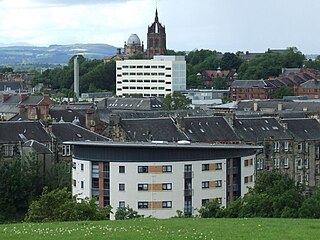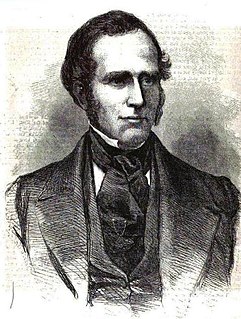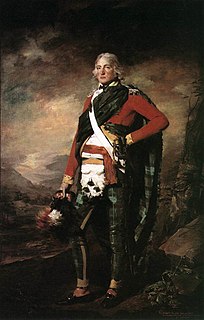Life
Born at Paisley on 2 April 1808, he was the second son of John Reid, M.D., by Jean McGavin, sister to William McGavin of Glasgow. After education mostly by his father, he was apprenticed to a firm of booksellers in Glasgow; at the end of the apprenticeship he went to London, and entered the service of Messrs. Black & Young, publishers. [1]

Paisley is a town situated in the west central Lowlands of Scotland. Located on the northern edge of the Gleniffer Braes, the town borders the city of Glasgow to the east, and straddles the banks of the White Cart Water, a tributary of the River Clyde.

William McGavin or M'Gavin (1773–1832) was a Scottish businessman and religious controversialist.

Glasgow is the most populous city in Scotland, and the third most populous city in the United Kingdom, as of the 2017 estimated city population of 621,020. Historically part of Lanarkshire, the city now forms the Glasgow City council area, one of the 32 council areas of Scotland; the local authority is Glasgow City Council. Glasgow is situated on the River Clyde in the country's West Central Lowlands. Inhabitants of the city are referred to as "Glaswegians" or "Weegies". It is the fourth most visited city in the UK. Glasgow is also known for the Glasgow patter, a distinct dialect of the Scots language that is noted for being difficult to understand by those from outside the city.
In a few years Reid returned to Glasgow, where he started as bookseller and publisher on his own account. He became involved in social reform and politics, supported Polish exiles, and was one of those who wanted the Earl of Durham to lead a reconstructed radical party in parliament. His political associates included Lord Dudley Stuart, Sir Daniel Macnee the painter, William Weir who became editor of the Daily News, and William Motherwell the poet. [1]

John George Lambton, 1st Earl of Durham, GCB, PC, also known as "Radical Jack" and commonly referred to in Canadian history texts simply as Lord Durham, was a British Whig statesman, colonial administrator, Governor General and high commissioner of British North America. He was a founding member and chairman of the New Zealand Company that played a key role in the colonisation of New Zealand.

Lord Dudley Coutts Stuart was a British politician. He was the youngest son of John Stuart, 1st Marquess of Bute, and his second wife, Frances Coutts, daughter of the banker Thomas Coutts.

William Motherwell, Scottish poet, antiquary and journalist.
Reid was a traveller, and in 1838 he went to Turkey on an extended visit. In 1840 he gave up his publishing business in Glasgow and went to Hong Kong to edit an English journal and prepare a Chinese dictionary. He died there, in either 1841 or 1842. [1]

Turkey, officially the Republic of Turkey, is a transcontinental country located mainly in Western Asia, with a smaller portion on the Balkan Peninsula in Southeast Europe. East Thrace, located in Europe, is separated from Anatolia by the Sea of Marmara, the Bosphorous strait and the Dardanelles. Turkey is bordered by Greece and Bulgaria to its northwest; Georgia to its northeast; Armenia, the Azerbaijani exclave of Nakhchivan and Iran to the east; and Iraq and Syria to the south. Istanbul is the largest city, but more central Ankara is the capital. Approximately 70 to 80 per cent of the country's citizens identify as Turkish. Kurds are the largest minority; the size of the Kurdish population is a subject of dispute with estimates placing the figure at anywhere from 12 to 25 per cent of the population.

Hong Kong, officially the Hong Kong Special Administrative Region of the People's Republic of China and commonly abbreviated as HK, is a special administrative region on the eastern side of the Pearl River estuary in southern China. With over 7.4 million people of various nationalities in a 1,104-square-kilometre (426 sq mi) territory, Hong Kong is the world's fourth most densely populated region.
Works
Reid is best known as the compiler of Bibliotheca Scoto-Celtica. While studying Gaelic in 1825, a friend asked Reid to catalogue his Gaelic books for him. This led to the compilation of the Bibliotheca Scoto-Celtica, which aimed to be a complete bibliography of books in Gaelic; it was seen in manuscript by Sir John Sinclair, 1st Baronet, in 1827. The Highland Society of London gave it an award in 1831, and it was published in Glasgow by Reid himself in 1832. [1] [2]

Scottish Gaelic or Scots Gaelic, sometimes also referred to simply as Gaelic, is a Celtic language native to the Gaels of Scotland. A member of the Goidelic branch of the Celtic languages, Scottish Gaelic, like Modern Irish and Manx, developed out of Middle Irish. Most of modern Scotland was once Gaelic-speaking, as evidenced especially by Gaelic-language placenames.

Sir John Sinclair of Ulbster, 1st Baronet, PC, MP, FRS, FRSE, FLS was a Scottish politician, a writer on both finance and agriculture, and the first person to use the word statistics in the English language, in his vast, pioneering work, Statistical Account of Scotland, in 21 volumes.
Reid published in 1835 a sketch of the Earl of Durham's political career. He contributed to periodicals and published Illustrations of Social Depravity, a series of booklets, Glasgow, 1834. He wrote a memoir for the Posthumous Works (1834) of William McGavin, and in 1840 published Turkey and the Turks, being the Present State of the Ottoman Empire. [1]
This page is based on this
Wikipedia article Text is available under the
CC BY-SA 4.0 license; additional terms may apply.
Images, videos and audio are available under their respective licenses.
Norman MacLeod, known in Gaelic as Caraid nan Gàidheal, was a Scottish divine and miscellaneous writer.
Robert Surtees was a celebrated English historian and antiquary of his native County Durham.

William Heath was a British artist who once described himself as a "portrait & military painter". He was best known for his published engravings which included caricatures, political cartoons, and commentary on contemporary life.
Robert Mudie (1777–1842) was a newspaper editor and author.
Adam Stark (1784–1867) was a printer, bookseller and antiquary, who worked for most of his life in Gainsborough. His father was probably the notable Edinburgh architect William Stark.
William Leechman (1706–1785) was a Scottish minister, theologian and academic.
John Joseph Griffin was an English chemist and publisher.
James Nichols (1785–1861) was an English printer and theological writer.

Alexander Johnston was a Scottish painter, known for genre and history paintings.
William Jones (1762–1846) was a Welsh bookseller, religious writer, and member of the Scotch Baptist church in Finsbury, London.
Pishey Thompson (1784–1862) was an English publisher and antiquarian writer, known as a historian of Boston, Lincolnshire. He spent the years 1819 to 1846 in the United States.
David Alphonso Talboys was an English bookseller, known as a publisher, translator, and local politician.
Richard Gilbert (1794–1852) was an English printer and compiler of reference works.

William Stephen Gilly (1789–1855) was an English cleric and author, known for his support of the Waldensian Church.
John Russell Smith (1810–1894), known as Russell Smith, was an English bookseller and bibliographer. He is best known for his "Library of Old Authors" reprint series.
Uilleam Ros (1762–1790/91) was a Scottish Gaelic poet from the Isle of Skye.
James Logan (1797–1872) was a Scottish author on Gaelic culture, best known for his 1831 book The Scottish Gael.
John Mackenzie (1806–1848) was a Scottish scholar of Gaelic language and literature.













